Ḥayātan Ṭayyibatan (Good Life): Quranic Pills for Happiness
In the long run, psychological scientists have amassed persuasive evidence that humans are routinely off base about what will bring them pleasure and fulfilment. They finalised humans have been conditioned to believe that the wrong things will make them lastingly happy. As a result, people often work to make things happen that don’t actually make them happy.
The Holy Qur’an as a divine book predicted and foretold several events with total confidence and categorical details. One of such predicting verse is:
قُلۡ بِفَضۡلِ اللّٰهِ وَبِرَحۡمَتِه فَبِذٰلِكَ فَلۡيَـفۡرَحُوۡا هُوَ خَيۡرٌ مِّمَّا يَجۡمَعُوۡنَ
“Only by the favor of Allah and by his unique love and care that should fill them with joy; it’s better than whatever else they are collecting” (Yunus 10:58).
Nowadays, people collect money, followers and possessions to be happy. But they end up in vain to get it. Almighty God has already stated this human characteristic of misunderstanding the happiness-increasing factors. Collecting the word of Allah and making it their counsel, healing, and guidance is far better than what they are collecting.
Happiness is perhaps the most highly sought-after goal in our life. The goal of happiness, tranquillity, serenity, peace of mind, contentment and freedom from worries and anxiety is what we struggle to achieve. Since the emergence of positive psychology in the last half of the 19th century, it has brought forward myriad happiness-increasing activities, which Quran already considered as the factors for a happy and good life.
In her book “The how of Happiness, " Sonja Lyumbomirsky sets forth the pie chart theory. It conveys the message that 50% of individual differences in happiness are governed by genes, 10% by life circumstances and the remaining 40% by what we do and how we think (intentional activities).
Since humans are not capable of making changes in their genes and have little control over their circumstances. Science, as a result of its long-time experiments, came across some intentional activities for leading a happy and fulfilled life by taking advantage of the rest, 40%.
The fascinating fact is that science could find nothing new to count as happiness-boosting activities beyond what Quran has typically defined before as features for leading a “Hayat- ul-Tayyiba” (good life). Allah says:
الَّذِيۡنَ اٰمَنُوۡا وَكَانُوۡا يَتَّقُوۡنَ لَهُمُ الۡبُشۡرٰى فِى الۡحَيٰوةِ الدُّنۡيَا وَفِى الۡاٰخِرَةِ
“Those who believed and were God conscious. For them are the glad tidings in this life and in the hereafter” (Yunus 10: 63, 64).
Even though the ultimate happiness of a true believer is awaited in the hereafter world, he can also lead a glad and satisfying life along the way to his destination, Jannah. For instance, the verse affirms that a believing and pious person can experience a better positive life in both worlds.
The recent disclosure of a growing body in psychological science suggests that religious people are happier, healthier and recover better after traumas than non-religious people. Basically, it is just a replication of what the abovementioned Ayah is referring to.
The religion Islam, being a way of life, ensures to grant its people a happy and good life. Since scientifically proven happiness-boosting activities are included in the five fundamental pillars of Islam, no Muslims have to worry about a ‘good life’ anymore.
The prominent researcher of ‘gratitude’ author Robert Emmons writes ‘people who regularly keep gratitude journals are healthier, more upbeat and more likely to progress toward achieving personal goals. Moreover, emerging research has recently found out that people who are consistently grateful have been found to be relatively happier, more energetic, and to report experiencing more positive emotions.
Fourteen centuries ago, Prophet (ﷺ) was trying to convince the same concept when he said “Great is the state of a believer, for he is a winner at any rate. If he is given a blessing and thus shows gratitude, it is good for him. If he is plagued with an affliction and thus shows patience, it’s also good for him.” (Sahih Muslim 2999)
No matter what happens to a believer, he has the means to stay quiet and calm either way. Even the act of ‘fasting’, which is one of the five pillars of Islam, is meant for realising how grateful a person should be to his God. Allah says:
لَئِن شَكَرۡتُمۡ لَأَزِيدَنَّكُم
“If you are grateful, I will certainly give you more” (surah ibrahim 7)
The 75 years-long happiness study of Harvard University has tracked the lives of some groups of men since 1938. The most obvious conclusion of the study is that those who focus on relationships with friends, family and the community tend to be happy and perform the best.
Allah says:
وَاعۡبُدُوا اللّٰهَ وَلَا تُشۡرِكُوۡا بِهٖ شَيۡـئًـا ؕ وَّبِالۡوَالِدَيۡنِ اِحۡسَانًا وَّبِذِى الۡقُرۡبٰى وَالۡيَتٰمٰى وَ الۡمَسٰكِيۡنِ وَالۡجَـارِ ذِى الۡقُرۡبٰى وَالۡجَـارِ الۡجُـنُبِ وَالصَّاحِبِ بِالۡجَـنۡۢبِ وَابۡنِ السَّبِيۡلِ
“Worship God and join non with him in worship and do good to patents, kin, orphans, the poor the neighbor who is a stranger, the neighbor who is close by, the companion by your side, the wayfarer” (4:36).
It is further clarified by the behaviour of the Prophet (ﷺ), who prohibited saying even ‘shucks’ to parents.
Researchers Dunn, Aknin, and Nortun studied whether there is a link between generosity and happier life. They found that the people who dedicate a significant portion of their money to generous prosocial activities more than personal spending were happier than those who spent more on themselves and less on others.
Doesn’t the imposing of Zakat as another pillar of Islam make sense now? God wants believers to be happy. Prophet (ﷺ) says: “You will not believe until you love for your brother what you love for yourself”. (Bukhari)
According to Psychology Today, meditation is the most robust mental practice that can reset one’s happiness, thus turning one into a more joyful person and rewiring major areas in the brain. In the research titled ‘Unity of health through Yoga and Islamic prayer ‘salah’’ by Raot Ahmad Bhat, he explains: “Most of the postures performed during Muslim prayers have a similar Yoga Pose.”
Quran is sufficient of counsels which promote humans to do righteous deeds and whoever follow it, should be rewarded with “good life”. Allah says:
مَنۡ عَمِلَ صَالِحًـا مِّنۡ ذَكَرٍ اَوۡ اُنۡثٰى وَهُوَ مُؤۡمِنٌ فَلَـنُحۡيِيَنَّه حَيٰوةً طَيِّبَةً
“Whoever does righteous deeds’ whether male or female while he is a believer, then surely we will give him a good life”. (16:97)
In a nutshell, emerging research studies and findings repeatedly acknowledge the Islamic concept and revelations of the Quran on happiness. So, increase your joy in the Qur’an by understanding God’s communication to you. Savour its beauties and depths, and take from it what you need to keep afloat in this stormy world. Appreciate it and know that nothing else is more worthy of rejoicing than God’s words to you.
Bibliography
Lyumbomirsky, S. (2007). The how of happiness. Penguin Books.
McCullough, M. (2004). The psychology of gratitude. California: Nova.
khan, M. w. (2009). The Quran. New Delhi: Goodword books.
Qurtubi, A. (n.d.). Tafsir al-Qurtubi. Islamabad: International Islamic University.
About the author
Muhammad Arshaq is Degree student at Darul Uloom Islamic Da’wa College, Thootha (affiliated to Darul Huda Islamic University, Chemmad). Also pursuing a degree in psychology at the Indira Gandhi National Open University. (arshaqkondotty@gmail.com)
Disclaimer
The views expressed in this article are the author’s own and do not necessarily mirror Islamonweb’s editorial stance.

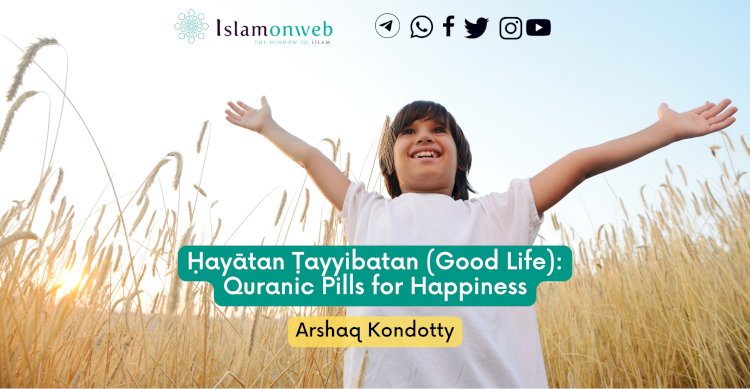




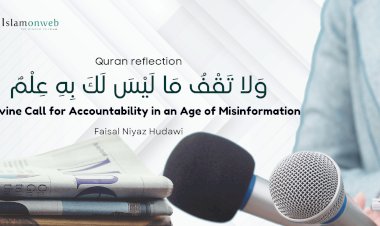
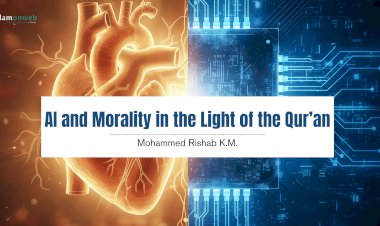
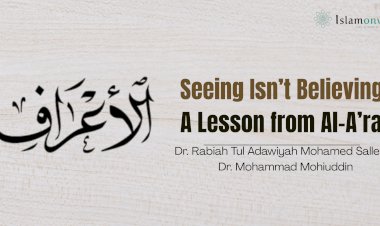
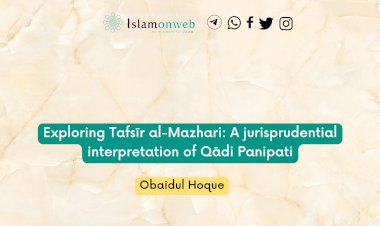















Leave A Comment